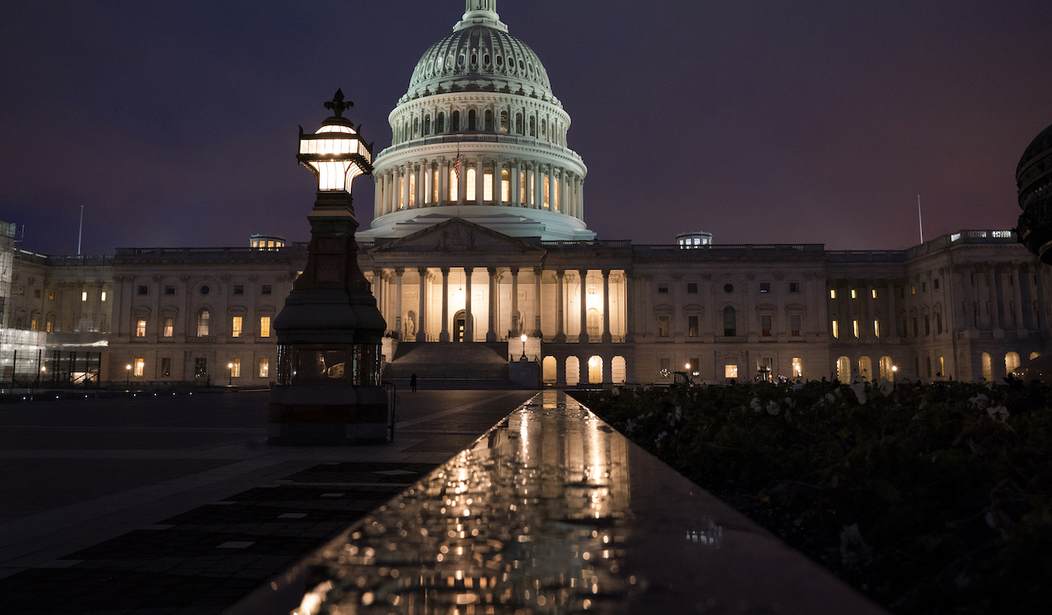Talk to any D.C. denizen about the actual close-up view of the federal government they get, and inevitably something like the following question will come up: “Surely, people in politics know the system is broken? Why isn’t anyone doing anything to fix the numerous manifest failures of governance/policy/spending, etc?”
And inevitably, if your interlocutor is honest, they’ll be forced to give something like the following answer: “Yes, things are broken, but they’re not broken enough for anyone in D.C. to care, yet. Too much money is riding on all sides of every policy question for truth to prevail until it becomes impossible to ignore. The system is rigged to continue doing things that don’t work until they blow up in people’s faces.”
Speaking of things that blow up in people’s faces and failure that’s impossible to ignore, let’s talk about the most wasteful military project in American history, the F-35 Joint Strike Fighter. Because as it happens, no better case study for the failure of Washington’s head-in-the-sand approach to policy and spending questions exists than the continued persistence of the F-35 as a military expenditure. At time of writing, the Department of Defense has spent $1 trillion on the F-35, a plane that still can barely fly, may need to have its computer system ripped out for making the plane harder to fly, and gives pilots nausea. In one of the funniest examples of the F-35’s failures, the F-35 Lightning just recently had to be grounded because it…can’t fly in lightning. Yes, a plane literally called the “lightning” can’t fly in lightning. This is the stuff of standup comedy.
However, for years, Lockheed Martin, the company responsible for building the F-35, has been allowed to go on wasting taxpayer money due to a clever little trick of political gamesmanship: they put parts manufacturers in every state. In other words, for all members of congress, targeting the F-35 meant targeting jobs in their state, which effectively made it a political third rail. If Lockheed Martin was this clever about actually building the plane, it might actually live up to its marketing.
Recommended
However, in a sign that even Washington can’t condone failure forever, the House Oversight and Reform Committee has apparently decided that it’s high time the F-35 faced an accounting for its failures. In a June 18 letter to Lockheed, the committee’s chairwoman Rep. Carolyn Maloney called out the company for imposing “excess costs” on the Department of Defense to the tune of $300 million since 2015, all because the DoD has to divert personnel to fix issues with the plane and use workarounds to make the plane fly at all. “It is imperative that Lockheed Martin be held accountable for meeting its contractual obligations and that taxpayer money is spent efficiently and effectively,” Maloney wrote. Hear, hear.
Whether this fresh bit of scrutiny from Congress will force Lockheed to clean up its act and either make the F-35 work or lose the project altogether, is an open question. Given the outsized power that the defense contractor holds in Congress, one should always be wary of being too optimistic. However, the mere fact that the House is suddenly interested in what was formerly an untouchable boondoggle is a sign that, even in Washington, failure has its limits.
But encouraging though that thought is, one still has to wonder why it took so much time and money for Congress to even pay attention to the biggest eyesore in defense spending. After all, the F-35 was allowed to waste over $1 trillion long before Maloney et al raised the issue. If Congress will tolerate that kind of failure when there is a clear and easy to measure price tag, what will they tolerate in cases where the malfeasance is just as clear, but not as quantifiable? What if, for instance, the program in question violates not the federal purse, but the separation of powers, as in the case of the Department of Labor’s runaway Office of Federal Contract Compliance Programs (OFCCP), which acts as a secret court policing “discrimination” – discrimination that would normally be left to the court system to resolve? What if the problem is not wasting money, but hoarding and abusing power, as we have seen over the past few weeks with the mounting and troubling revelations about the culture within the Obama-era FBI? How close to the cliff do we have to be before Congress stops being asleep at the wheel?
The founding fathers did not conceive of Congress as a mere occasional annoyance for otherwise autonomous executive agencies. They saw it as a check on the power of the executive, including especially attempts by the executive to usurp the power of Congress to allocate funds and make legislation. Congress is meant to be jealous of its own power, yet except where partisan politics indicates, it is normally willing to roll over in the name of lining its own pockets. What can be done to make Congress act the part it was supposed to act again? What will it take for the legislative branch to try to stop failure before it begins, rather than after it has festered to the point of parody?
We should celebrate the fact that Congress is taking notice of an instance of failure as egregious as the F-35. But ultimately, while scrutinizing a fighter plane that can’t survive the storms that are its namesake is satisfying, the case of the F-35, and the other instances mentioned above, raise real questions about whether our leaders can weather any storm.

























Join the conversation as a VIP Member